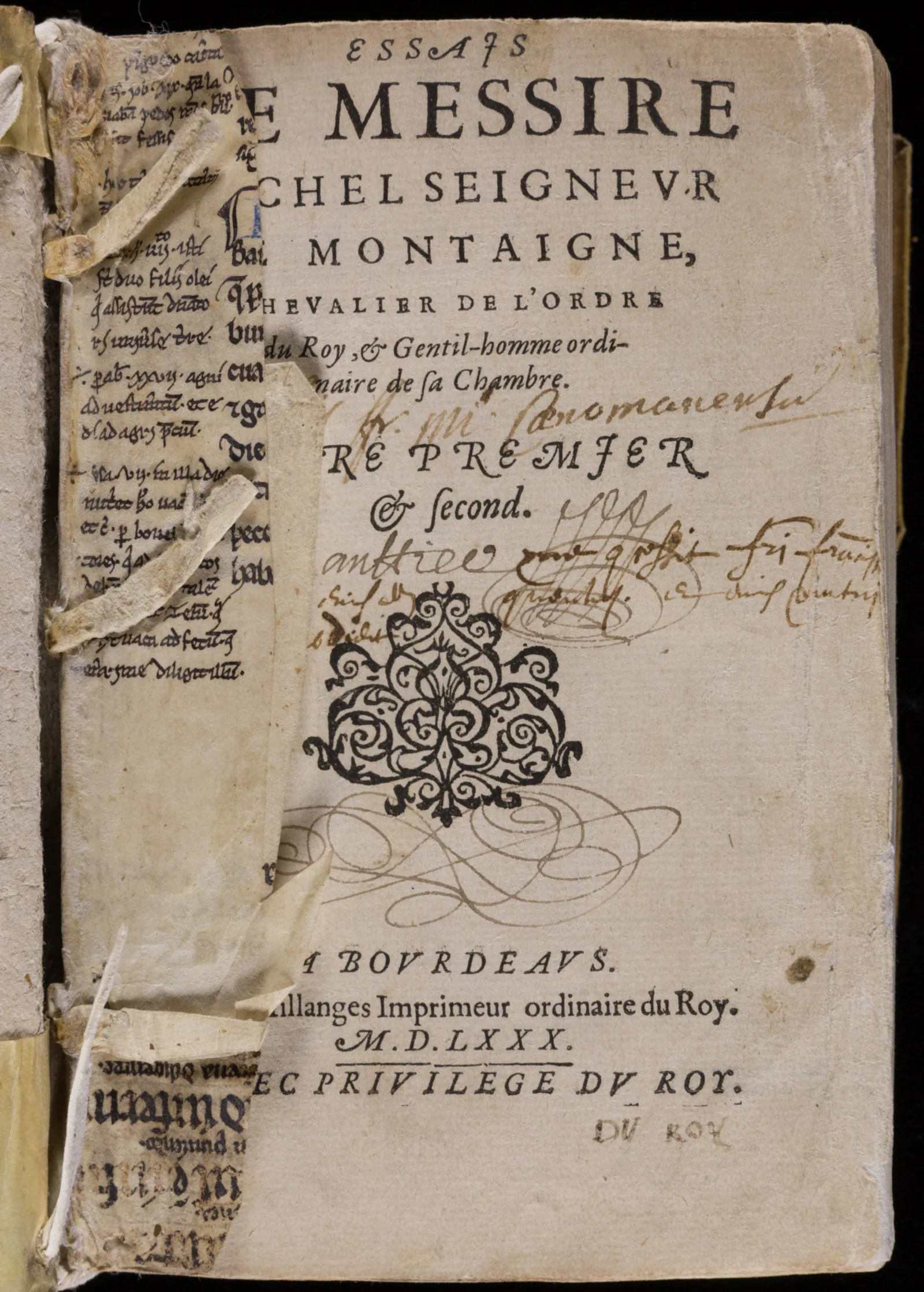During the bloody Wars of Religion between Catholics and Protestants in France (1562-98), the philosopher Michel de Montaigne criticized civil conflict, but not violence itself. Instead, he argued that violence was useful—as a testing grounds for virtue and the stability of the soul. This presentation explores why Montaigne portrayed sympathy not as a virtue but as a threat. Far from seeking compassionate, pacifist alternatives in the midst of violent times, his Essays argued instead that it is the practice of violence within limits that identified the ethical subject, and the threat of contagious, unreasoning fellow feeling that risked its freedom.
Event—Public Programming
The Virtues of Violence and the Pitfalls of Pity

Essais de messire Michel seignevr de Montaigne, chevalier de l'Ordre du roy, & gentil-homme ordi-naire de sa chambre